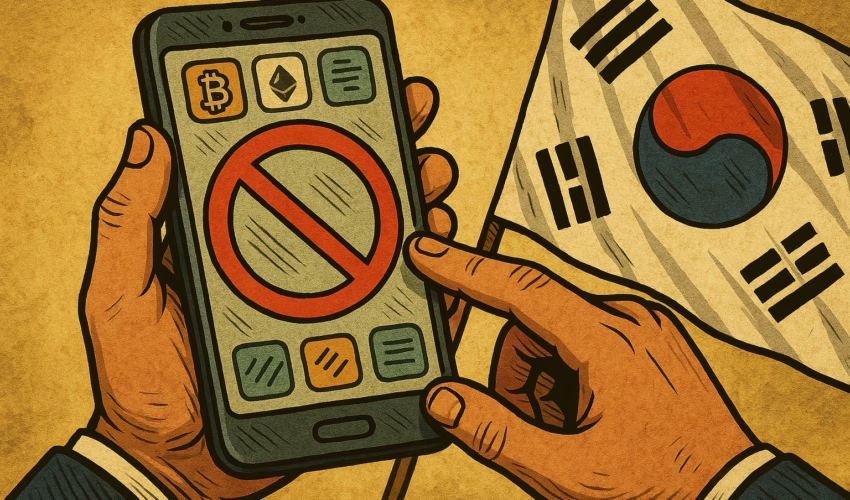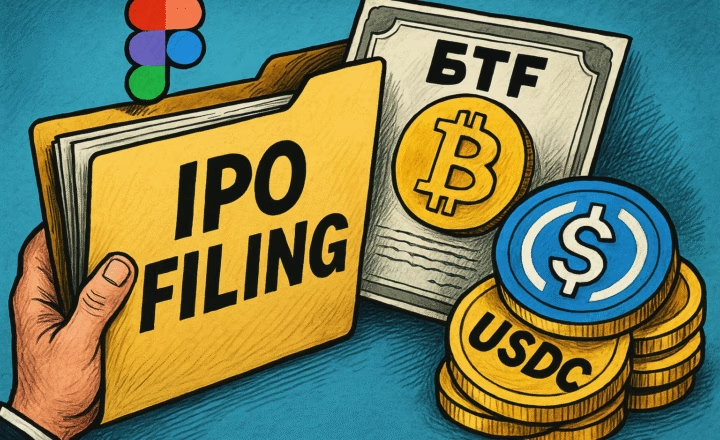KuCoin and MEXC Among Targets as FSC Expands Enforcement
South Korea is ramping up its efforts to block unregistered crypto exchanges from servicing its citizens, this time by targeting applications listed on the Apple App Store. According to an April 14 report, the country’s Financial Services Commission (FSC) confirmed that 14 exchange apps, including those from KuCoin and MEXC, were blocked on April 11.
The move comes just weeks after Google Play took similar action, blocking 17 unregistered crypto exchange apps on March 26, including KuCoin and MEXC. The FSC has now identified a total of 22 unregistered platforms operating within South Korea.
“Unreported business activities are criminal offenses punishable by up to five years in prison and a fine of up to 50 million won (~$35,200),” the FSC said in its report.
Financial Intelligence Unit to Enforce Additional Sanctions
The crackdown is being coordinated in tandem with the country’s Financial Intelligence Unit (FIU), which has vowed to block both websites and apps tied to non-compliant Virtual Asset Service Providers (VASPs). The FSC report emphasizes that these measures are designed to prevent money laundering and protect domestic users from potential fraud.
In March, South Korean publication Hankyung reported that the FSC and FIU were also considering financial and legal sanctions against overseas exchanges operating without proper registration. This includes blocking access to platforms, initiating investigations, and even criminal prosecution in certain cases.
Under South Korean law, all crypto platforms involved in sales, custody, brokerage, or management of virtual assets must register with the FIU. Non-compliance is treated as a criminal violation.
Apps Blocked for New and Existing Users
The FSC confirmed that users in South Korea will no longer be able to download the affected exchange apps from the Apple App Store. Existing users will be unable to update their apps, effectively limiting functionality and encouraging users to migrate away from unregistered platforms.
This multi-platform approach—coordinated between Apple and Google—signals a broader push by regulators to tighten control over digital asset activity, especially as crypto usage continues to surge nationwide.
Crypto Adoption Booms, Regulation Tightens
The clampdown comes as South Korea approaches a crypto saturation point. As of March 31, over 16 million South Koreans—more than 30% of the population—had crypto exchange accounts. That number is expected to exceed 20 million by the end of 2025, according to industry officials.
While adoption soars, so does the urgency for consumer protection. Authorities are increasingly concerned about fraud risks, tax evasion, and unregulated capital flows—especially from foreign-based platforms that lack compliance with domestic laws.
“We are committed to ensuring that crypto activity within South Korea remains transparent, compliant, and secure,” an FIU spokesperson said.
Final Thoughts: A Model for Regional Regulation?
South Korea’s approach could become a regulatory blueprint for other countries navigating the tension between rapid crypto adoption and enforcement capacity. By leveraging app store infrastructure to enforce compliance, regulators are finding new ways to restrict unauthorized market participants.
As the crypto industry matures, firms operating in global markets—especially those with no local registration—may find themselves increasingly shut out of critical user bases unless they engage with local regulators.
For now, South Korea’s message is clear: operate legally, or risk digital exclusion.












